Publications
Articles, publications, books, tools and multimedia features from the U.S. Institute of Peace provide the latest news, analysis, research findings, practitioner guides and reports, all related to the conflict zones and issues that are at the center of the Institute’s work to prevent and reduce violent conflict.

Getting In
This penetrating study of successful mediation in a half-dozen violent conflicts across the African continent focuses on a hitherto neglected dimension of mediation and the motivations of the parties in conflict—and of the mediators themselves—in initiating the mediation option.
Peace Agreements: Eritrea-Ethiopia
Agreement between the Government of the Federal Democratic Republic of Ethiopia and the Goverment of the State of Eritrea (12-12-2000) Posted by USIP Library on: December 13, 2000 Source Name: The Embassy of Ethiopia, Washington, D.C. for text of the agreement and date and signature authentication. Date faxed: December 12, 2000 Additional Documents Statement of U.S. Secretary of State Madeleine K. Albright (12-12-2000) Posted by USIP Library on: December 13, 2000 Source Name: Web s...
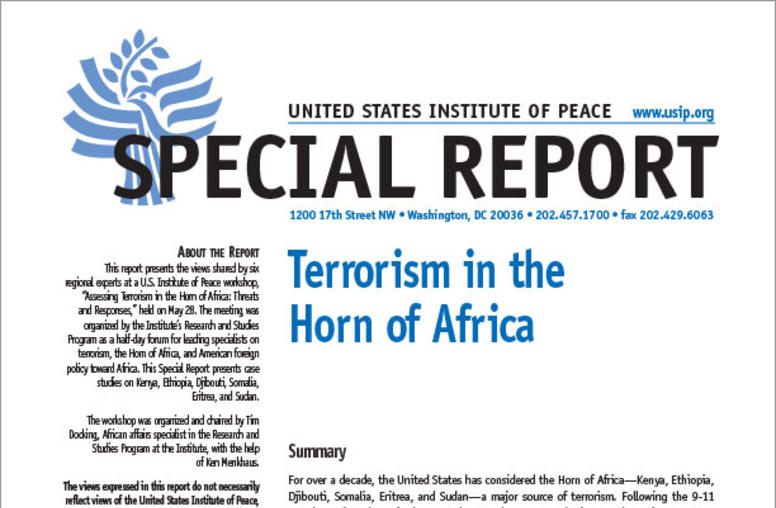
Terrorism in the Horn of Africa
Summary For over a decade, the United States has considered the Horn of Africa—Kenya, Ethiopia, Djibouti, Somalia, Eritrea, and Sudan—a major source of terrorism. Following the 9-11 attacks against the United States, the Horn has come under increased scrutiny as a strategic focal point in the war against terrorism. In May 2003, the Kenyan government admitted that a key member of the al Qaeda terror network was plotting an attack on western targets, confirming al Qaeda's firm local ...
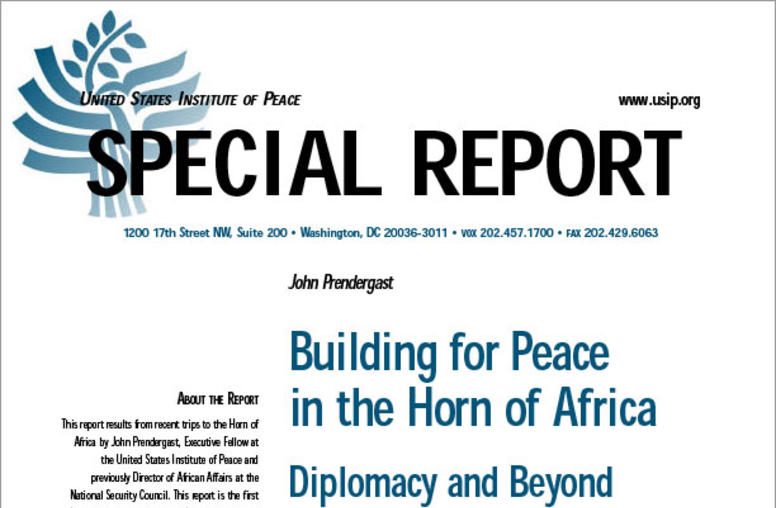
Building for Peace in the Horn of Africa: Diplomacy and Beyond
Summary Already the deadliest conflict cluster in the world, the Horn of Africa has exploded again because of the intensification of the once-improbable Ethiopia-Eritrea war. Support by Ethiopia and Eritrea for proxy militias in Somalia has reignited the Somali civil war and threatened the south with renewed famine.
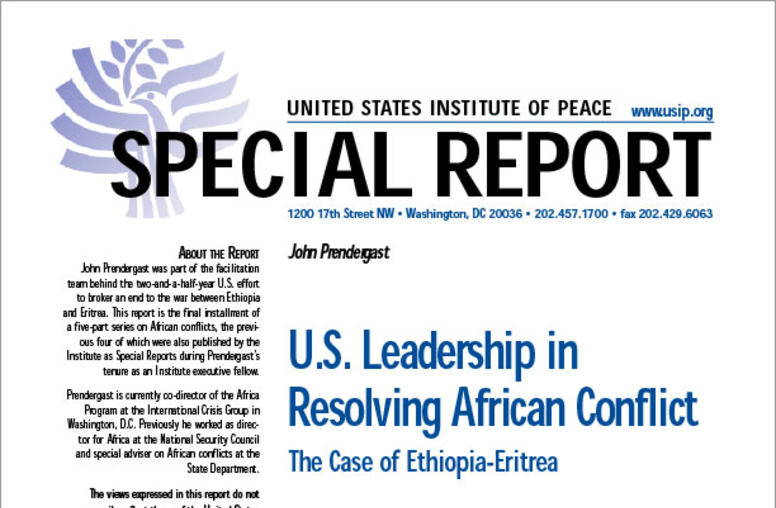
U.S. Leadership in Resolving African Conflict: The Case of Ethiopia-Eritrea
John Prendergast was part of the facilitation team behind the two-and-a-half-year U.S. effort to broker an end to the war between Ethiopia and Eritrea. This report is the final installment of a five-part series on African conflicts, the previous four of which were also published by the Institute as Special Reports during Prendergast's tenure as an Institute executive fellow.
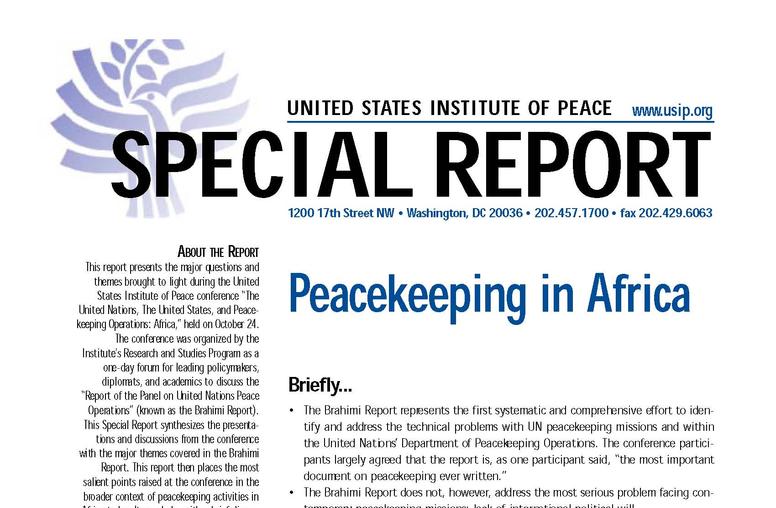
Peacekeeping in Africa
Summary PART ONE The Brahimi Report represents the first systematic and comprehensive effort to identify and address the technical problems with UN peacekeeping missions and within the United Nations' Department of Peacekeeping Operations. The conference participants largely agreed that the report is, as one participant said, "the most important document on peacekeeping ever written." The Brahimi Report does not, however, address the most serious problem facing contemporary peace...

Food Insecurity’s Impact on Conflict Merits a Closer Look
A new report from the Woodrow Wilson International Center for Scholars illuminates the connections between conflict and food insecurity admirably, even as it recognizes that considerable work remains to be done on how food-related problems actually promote or alter conflict.
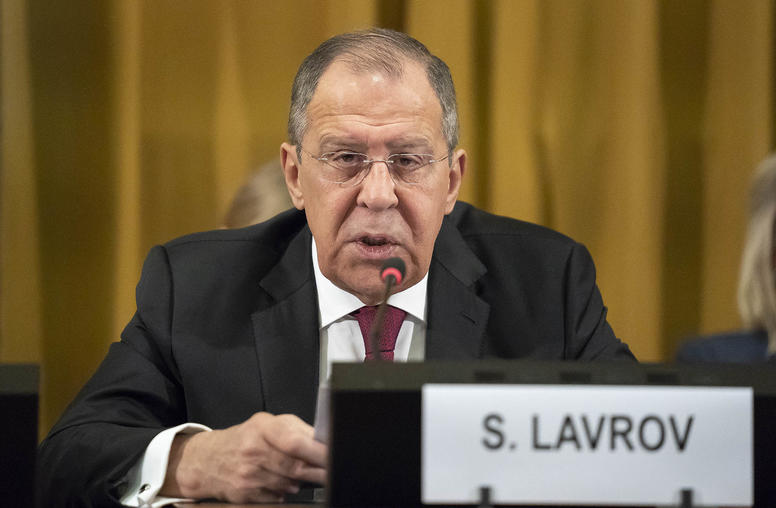
Amid War in Ukraine, Russia’s Lavrov Goes on Diplomatic Offensive
As Russia’s unprovoked and illegal war against Ukraine enters its seventh month, the Russian government continues its diplomatic offensive to prevent more countries from joining international condemnation and sanctions for its military aggression. Between July and August, Russia’s Foreign Minister Sergey Lavrov traveled to Egypt, Ethiopia, Uganda, the Republic of Congo, Myanmar and Cambodia — the last as part of the Association of Southeast Asian Nations (ASEAN) Foreign Ministers’ Meeting. This tour represented an evolving reorientation of Russian foreign policy from Europe to the Global South that has accelerated since Russia’s first invasion of Ukraine in 2014.
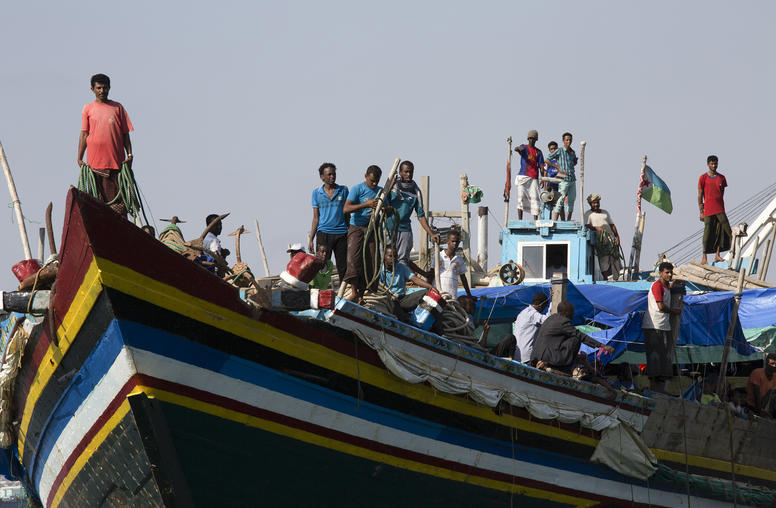
Why the U.S. Needs a Special Envoy for the Red Sea
The Trump administration has appointed four special envoys to coordinate U.S. policy toward key hot spots: Iran, North Korea, Syria, and Afghanistan. Yet in the Red Sea—one of the most volatile and lethal regions of the world afflicted by several interconnected conflicts and rivalries that pose significant challenges to American interests—U.S. policy has been rudderless in large part due to the absence of a similar post.
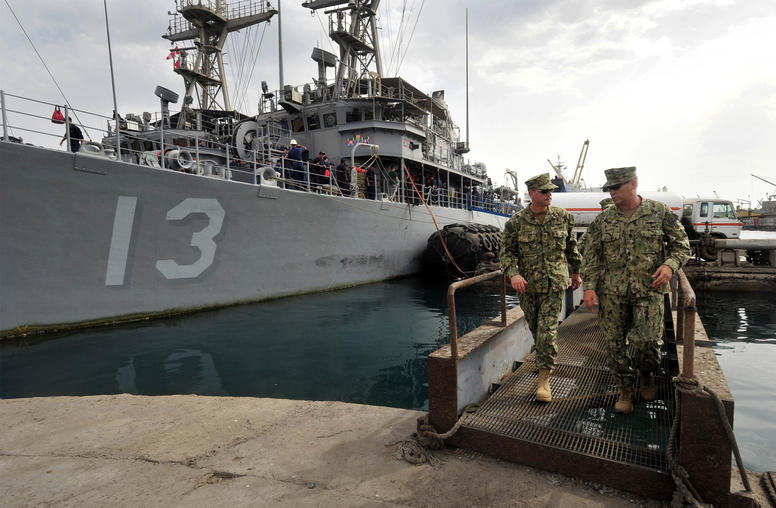
In Red Sea Region, Competing Outside Powers Complicate U.S. Interests
David Shinn, a former U.S. ambassador to Ethiopia and Burkina Faso, examines how great and regional power competition is impacting political and security dynamics in the Horn of Africa and complicating U.S. interests in the region.